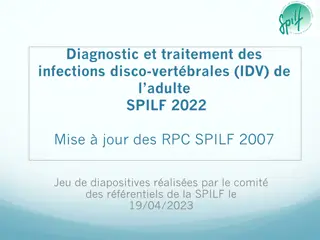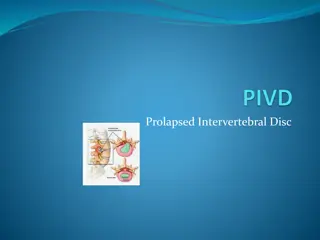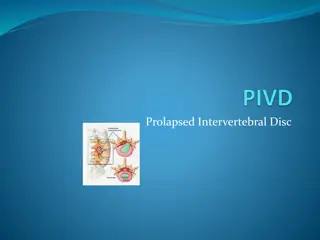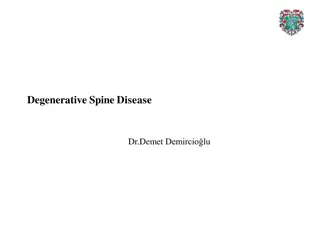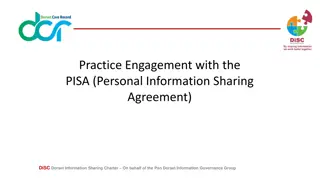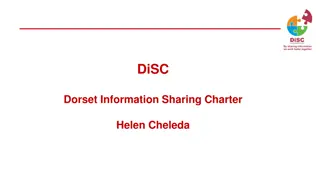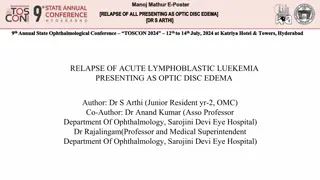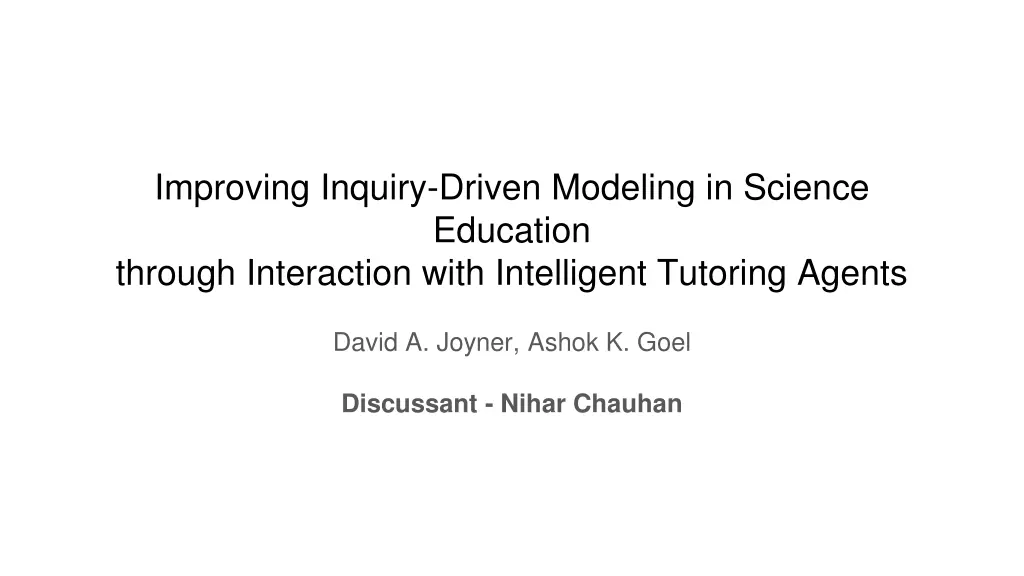
Enhancing Science Education through Intelligent Tutoring Agents
Explore the use of intelligent tutoring systems to improve inquiry-driven learning in science education, focusing on metacognitive skills, inquiry-based learning, and addressing challenges in personalized teaching. Critique by Lucy Suchman highlights the need for more flexible and adaptive approaches in designing intelligent tutoring systems.
Download Presentation

Please find below an Image/Link to download the presentation.
The content on the website is provided AS IS for your information and personal use only. It may not be sold, licensed, or shared on other websites without obtaining consent from the author. If you encounter any issues during the download, it is possible that the publisher has removed the file from their server.
You are allowed to download the files provided on this website for personal or commercial use, subject to the condition that they are used lawfully. All files are the property of their respective owners.
The content on the website is provided AS IS for your information and personal use only. It may not be sold, licensed, or shared on other websites without obtaining consent from the author.
E N D
Presentation Transcript
Improving Inquiry-Driven Modeling in Science Education through Interaction with Intelligent Tutoring Agents David A. Joyner, Ashok K. Goel Discussant - Nihar Chauhan
Relevance to Today's Research Integration of Technology in Education The paper explores the use of intelligent tutoring systems (ITS) to enhance inquiry-driven learning in science education. ITS are a growing area of interest in educational technology as they offer personalized learning experiences and can adapt to the needs of individual students. This aligns with current trends towards personalized education. Focus on Metacognitive Skills The paper emphasizes the importance of teaching metacognitive skills such as self-regulation and reflection. These skills are essential for continuous learning throughout life. In today's education, it's a top priority to help students develop these skills because they make students more independent and better at learning. Inquiry-Based Learning The focus on teaching methods that encourage students to ask questions and explore answers supports a shift towards a type of learning called inquiry-based learning (IBL). This approach helps students engage in scientific exploration and develop their ability to think critically. This approach is increasingly being adopted in educational settings because it helps students understand topics more deeply and makes learning more engaging. Addressing Educational Challenges The paper talks about the challenges of giving personalized teaching in large classrooms. It suggests using Intelligent Tutoring Systems (ITS) as a solution. These systems can be scaled and adapted to diverse learning environments
Lucy Suchmans perspective on this research Critique of Intelligent Tutoring Systems (ITS) Suchman would likely criticize Intelligent Tutoring Systems (ITS) for depending too much on predefined teaching plans. These plans might not be flexible enough to handle the changing and context-dependent nature of student interactions. She argues that human interaction requires constant adjustment to new situations which ITS might struggle with if they rely too heavily on fixed teaching models. Challenges in Implementing Situated Learning Suchman points out a key challenge that machines struggle to understand humans clearly because they often can t interpret the nuanced actions and intentions of people. Her work suggests that we need to rethink how Intelligent Tutoring Systems (ITS) are designed so they can better support the interactive and changing nature of human learning. Critique on Plan-Based Models Suchman argues against the traditional way of designing AI which relies on pre-planned models. She says these models don t capture the fluid and interactive nature of human behavior. Her work suggests that Intelligent Tutoring Systems (ITS) should move away from rigid teaching plans and instead support more flexible and adaptive learning experiences that can respond to the changing context of student interactions.
Lucy Suchmans perspective on this research Situated Action in Education Suchman believes that educational technologies like Intelligent Tutoring Systems (ITS), should be designed to support learning that is specific to each student's situation. This means the systems should be flexible and adapt to the individual needs and contexts of learners. In science education, using inquiry-driven modeling could benefit from Suchman s ideas by making sure the systems can adapt in real-time and respond to the changing needs of students. Opportunities for Improvement Suchman's ideas suggest that we should rethink how Intelligent Tutoring Systems (ITS) are designed. She believes these systems should be more adaptable and better at supporting learning through inquiry. By focusing on the specific context of each student's learning, ITS can help create more meaningful interactions. This can make students more engaged and help them understand science better.
Herbert Simon's perspective on this research Bounded Rationality The research on inquiry-driven modeling in science education aligns with Simon's concept of bounded rationality by highlighting the importance of guided instruction. Intelligent tutoring agents assist students in making satisfactory decisions within their cognitive limits, supporting the development of metacognitive skills. Critique of Traditional AI Models Simon criticized traditional AI models for their limited ability to mimic human decision-making processes, pointing out the need for systems that can adapt to complex environments. He argued that intelligent systems should be created to support problem-solving and decision-making similar to humans, instead of relying only on predefined algorithms. Relevance to Inquiry-Driven Modeling Simon's theories highlight the need to design intelligent tutoring systems (ITS) that can adapt to the dynamic nature of inquiry-driven learning environments. He would likely support ITS that promote metacognitive skills, allowing students to engage in self-regulated learning and problem-solving.
Herbert Simon's perspective on this research Designing for Self-Regulation ITS should include features that encourage self-regulation, such as setting goals, self-monitoring, and strategic planning. By supporting these skills, ITS can help students become more independent learners who are better prepared to handle complex scientific inquiries. Opportunities for Enhancing ITS Simon's work indicates that ITS should include adaptive features that provide real-time feedback and guidance, which aligns with his focus on procedural rationality. By integrating Simon's insights, ITS can better help students develop inquiry-driven modeling skills, promoting a deeper understanding and engagement in science education.
Learning from Inquiry-Driven Modeling for Adaptive Task Manager Adaptive Guidance and Feedback The research highlights the importance of guided instruction in inquiry-driven modeling. This can be used in our project by including adaptive feedback mechanisms to help users with ADHD manage tasks effectively. By using intelligent agents similar to those found in the MILA-T system, our project can offer personalized guidance that adjusts to the user's progress and needs, helping them in staying focused and organized. Metacognitive Support The study highlights the importance of teaching metacognitive skills which are essential for self-regulation. The Adaptive Task Manager can include features that encourage users to think about their task management strategies and improve their planning and organizational skills. By adding tools that prompt users to set goals, track their progress, and adjust their strategies, we can enhance their self- awareness and task management capabilities.
Learning from Inquiry-Driven Modeling for Adaptive Task Manager Interactive and Engaging Environment The research shows the importance of interactive learning environments in keeping students engaged. Similarly, our project can gain from creating an engaging user interface that encourages active participation in task management. By including elements like gamification or interactive prompts, we can make the task management process more engaging for users with ADHD. Continuous Improvement through Feedback The results indicate that interacting with tutoring systems leads to improvements in learning processes. Our project can include a feedback loop where users receive constructive feedback on their task management performance, encouraging continuous improvement. By examining user interactions and offering personalized suggestions, our Adaptive Task Manager can help users develop effective task management habits over time.

